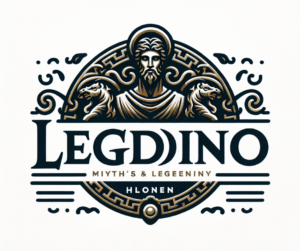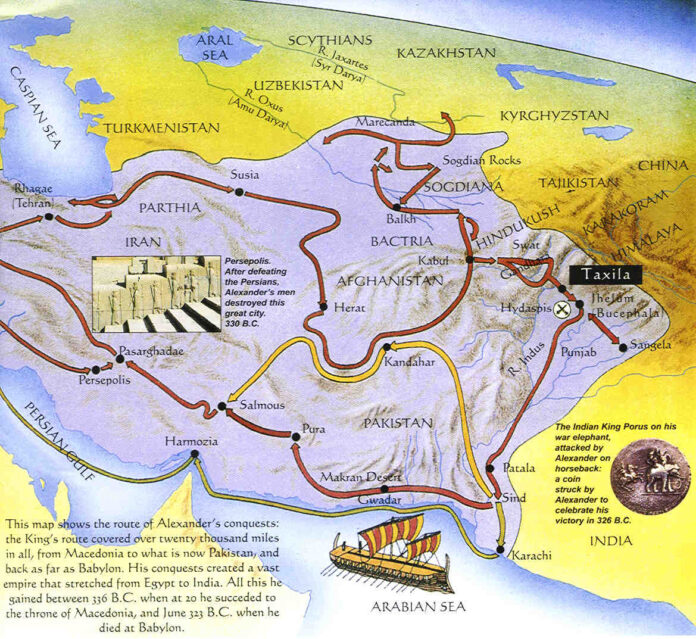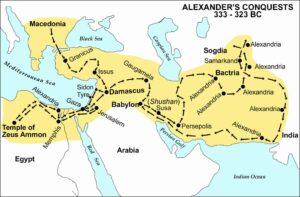
Alexander the Great, one of history’s most celebrated military leaders, is renowned for his extraordinary conquests that shaped the ancient world. As we step into 2024, new research and discoveries continue to unveil untold stories about Alexander’s campaigns. This article delves into these lesser-known aspects of his conquests, offering fresh insights into the legacy of this iconic figure.
The Early Years: Foundations of a Legend
Alexander III of Macedon, commonly known as Alexander the Great, was born in 356 BC in Pella, the ancient capital of Macedonia. Tutored by the philosopher Aristotle, Alexander’s early education laid a strong foundation for his future military and political strategies. His father, King Philip II, unified Greece under Macedonian rule, setting the stage for Alexander’s legendary campaigns.
The Conquest of the Persian Empire: Beyond the Battle of Gaugamela
Alexander’s conquest of the Persian Empire is a widely known chapter in his history. However, recent archaeological findings have shed new light on his strategy and the aftermath of key battles such as Gaugamela (331 BC). Recent studies reveal that Alexander’s tactical brilliance extended beyond battlefield maneuvers. His ability to integrate diverse cultures into his empire played a crucial role in maintaining control over the vast territories he conquered.
The Role of Propaganda and Psychological Warfare
One untold aspect of Alexander’s conquests is his use of propaganda and psychological warfare. Historical records suggest that Alexander was adept at spreading myths about his divine status and invincibility. This psychological manipulation not only demoralized his enemies but also facilitated the integration of new territories into his empire.
The Founding of Cities: Alexandria’s Strategic Importance
Alexander founded over 20 cities, many of which were named Alexandria. These cities served as administrative and cultural hubs, strategically placed to consolidate his empire’s control. Alexandria in Egypt, the most famous of these, became a major center of learning and culture, influencing the Hellenistic world profoundly. Recent studies highlight how Alexander’s city-planning contributed to the long-term stability and prosperity of his empire.
The Indian Campaign: Insights from the Battle of the Hydaspes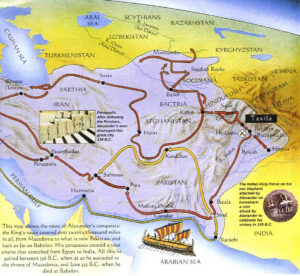
Alexander’s invasion of India, culminating in the Battle of the Hydaspes (326 BC), is often overshadowed by his Persian campaigns. However, this campaign was significant for several reasons. Recent archaeological discoveries in the Punjab region have uncovered evidence of Alexander’s interactions with local rulers and his strategic adaptations in unfamiliar terrain. These findings offer new perspectives on Alexander’s adaptability and his diplomatic engagements with Indian states.
Cultural Exchanges and the Impact on Indian Society
The Indian campaign also led to significant cultural exchanges between Greeks and Indians. Artifacts and inscriptions from this period reveal how Alexander’s presence influenced local art, coinage, and religious practices. This cross-cultural interaction contributed to the rich tapestry of Hellenistic and Indian art and thought.
The Mysterious Death and Legacy: New Theories
Alexander’s sudden death in 323 BC at the age of 32 remains one of history’s great mysteries. Recent research into historical accounts and medical studies suggests that malaria or typhoid fever might have contributed to his death, rather than the previously suggested poisoning. This new theory provides a more plausible explanation for his abrupt demise and the subsequent power struggles that ensued.
The Fragmented Empire: Alexander’s Successors
Following Alexander’s death, his empire was divided among his generals, known as the Diadochi. Recent historical analyses have focused on how these successors managed to preserve and expand Alexander’s conquests. Understanding their strategies and conflicts offers valuable insights into the empire’s fragmentation and the eventual rise of the Hellenistic kingdoms.
Alexander’s Enduring Legacy: Influence on Modern Leadership and Strategy
Alexander the Great’s legacy extends far beyond his military achievements. His influence on leadership, strategy, and cultural integration continues to be studied and admired. Modern military strategists and leaders draw lessons from Alexander’s innovative tactics and his ability to inspire and lead diverse groups of people.
The Impact on Western Civilization
Alexander’s conquests spread Greek culture and ideas across a vast region, laying the groundwork for the Hellenistic period. His legacy influenced Roman culture, which, in turn, shaped Western civilization. Today, Alexander’s life and achievements are still relevant, providing lessons in leadership, strategy, and cultural integration.
Conclusion: Revisiting the Legacy of Alexander the Great in 2024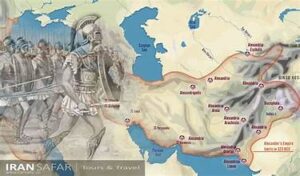
As we explore Alexander the Great’s untold stories and new discoveries in 2024, it becomes evident that his legacy remains as compelling as ever. His strategic brilliance, cultural influence, and the mysteries surrounding his life and death continue to captivate historians and enthusiasts alike. By uncovering these lesser-known aspects of his conquests, we gain a deeper appreciation of Alexander’s impact on history and his enduring legacy in the modern world.
